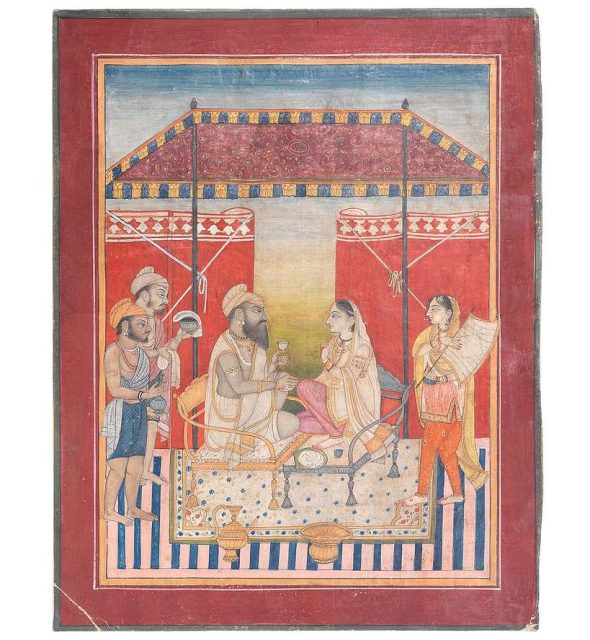BUDDH SINGH BAVA, an associate of Thakur Singh Sandhanvalia, who served as a link between him and his contacts in Punchh and Kashmir. He was the son of Faujdar Singh, a Khatri of Batala, in Gurdaspur district. He was first employed as a Sardar in Kashmir irregular force and served in that capacity for seventeen years. In 1880, he took service with Raja Moti Singh of Punchh and stayed with him for two years. Leaving his family at Kothi in Jammu, Buddh Singh then moved to Nepal where he was employed as a captain in Kali Bahadur regiment.
BUTA SINGH, DIWAN (b. 1826) .journalist, printer and one of the last employees of the Sikh royal household, was born the son of Gurdial Singh at Lahore in 1826. He was a man of wealth and influence, being the owner of a chain of printing presses. In his earlier career, he had served as diwan or household minister to Maharani Jind Kaur in whose cause he had attempted to raise disturbances just before the second AngloSikh war for which he was deported from the Punjab to Allahabad where he was kept a political prisoner for seven years. In 1866, he set up Aftabi Punjab press in Lahore and issued in Urdu a fortnightly law journal, Anwar ulShams.
CAMPBELL, WILLIAM (d. 1866), a Scotsman, who came to Lahore in September 1828 and was employed in the Sikh cavalry and given command of a regiment of 1200 horse. He soon gained the favour of Maharaja Ranjit Singh, but was dismissed from the service in August 1829 on a charge of misbehaviour towards a woman, and sent across the River Sutlej under an escort. Later, he served the Afghan rulers. He died in Kabul in 1866.

DESA SINGH MAJITHIA (1768-1832), an army general and civil administrator in Sikh times, was the son of Naudh Singh, a feudal retainer under Amar Singh Bagga of the Kanhaiya misl. When Naudh Singh died in 1788, Desa Singh succeeded to the family estates. He served Buddh Singh Bagga, successor of Amar Singh Bagga, for a number of years before joining Ranjit Singh`s army. In 1804, Desa Singh was made a commander of 400 sowars. He served the Maharaja in many of his early campaigns.







